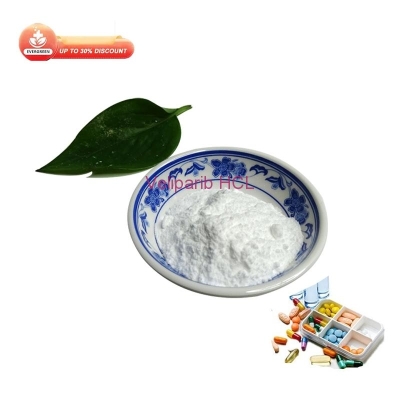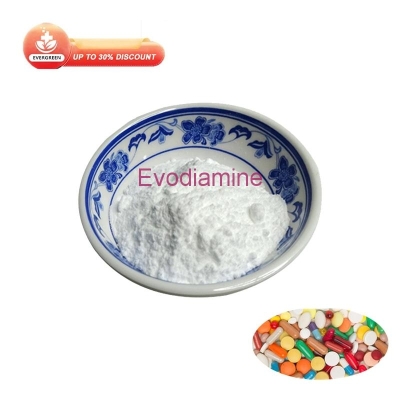-
Categories
-
Pharmaceutical Intermediates
-
Active Pharmaceutical Ingredients
-
Food Additives
- Industrial Coatings
- Agrochemicals
- Dyes and Pigments
- Surfactant
- Flavors and Fragrances
- Chemical Reagents
- Catalyst and Auxiliary
- Natural Products
- Inorganic Chemistry
-
Organic Chemistry
-
Biochemical Engineering
- Analytical Chemistry
- Cosmetic Ingredient
-
Pharmaceutical Intermediates
Promotion
ECHEMI Mall
Wholesale
Weekly Price
Exhibition
News
-
Trade Service
December 17, 2020 / -- Merck and Co and partner Eisai recently announced the evaluation of anti-PD-1 therapy Keytruda (Corida®, common name: pembrolizumab The key Phase 3 KEYNOTE-775/Study 309 trial (NCT03517449) was conducted in patients with advanced endometrial cancer with the oral polyseedic tyrosine kinase inhibitor Lenvima (Le Weimar ®, common name: Lenvatinib, lenvatinib).
data show that the Keytruda-Lenvima combination significantly extends total lifetime (OS) and progression-free lifetime (PFS) and significantly increases total remission rate (ORR) compared to chemotherapy.
currently, Mercadon and Isashi are conducting 20 clinical trials in 13 different types of tumors through the LEAP Clinical Program, including phase 3 trial LEAP-001 for first-line evaluation of patients with advanced endometrial cancer.
data from the project show that the Keytruda-Lenvima combination has shown strong results among many types of tumors! KEYNOTE-775/Study 309 is a multi-center, randomized, open-label Phase 3 trial conducted in patients with advanced endometrial cancer who have received at least one platinum-containing program to assess the efficacy and safety of Keytruda's combined treatment with Lenvima.
the study included 827 patients, of whom 697 had tumors with high non-microsatellial instability (non-MSI-H) or misaligned repair normal (pMMR), and 130 patients had high microsatellial instability (MSI-H) or misaligned repair defects (dMMR).
the study, patients were randomly assigned to :1) Keytruda (200mg every 3 weeks, intravenous infusion) for 35 cycles (approximately 2 years) and Lenvima (20mg once a day, oral) ;(2) chemotherapy (2 years) The doctor's choice of options (TPC): a maximum cumulative dose of 500 mg/m2 every 3 weeks for polyolytic stars (60 mg/m2 IV), or yew alcohol (80 mg/m2 IV), 28 days/cycle (3 weeks of treatment of yew alcohol once a week, one week of suspension).
results show that the study reached the dual primary endpoint of total lifetime (OS) and non-progressive lifetime (PFS) and the end point of objective mitigation rate (ORR).
these positive results were observed in the Misalmation Repair Normal (pMMR) subgroup and intentional therapy (ITT) study population.
ITT population included patients with pMMR, MSI-H/dMMR advanced endometrial cancer.
according to an analysis conducted by the Independent Data Monitoring Board, the Keytruda-Lenvima treatment group showed statistically and clinically significant improvements in OS, PFS, or ORR compared to the chemotherapy group (TPC: polymath or yew alcohol).
the study, the security of the Keytruda-Lenvima combination is consistent with previously reported studies.
and Eqa will discuss the data with regulators around the world and plan to submit listing applications based on the data, with the results scheduled to be presented at an upcoming medical conference. Dr Gregory Lubiniecki, Vice President of Oncology Clinical Research at Mercedon Research Laboratory,
Endometrial Cancer (Photo: womenworking.com) said: "Patients with advanced endometrial cancer face high mortality and limited treatment options after initial systemic treatment.
this is the first result of phase 3 clinical trials of advanced endometrial cancer in a combination treatment program that includes immunotherapy: the combination program improved significantly in OS, PFS, or ORR compared to chemotherapy.
and Isao are working to continue to study the Keytruda and Lenvima combinations and to find new ways to address unseeded medical needs in devastating diseases such as endometrial cancer. "We are encouraged by the data observed in the KEYNOTE-775/Study 309 trial, which represents an important step forward for patients with advanced endometrial cancer and supports the results of the lead study on advanced endometrial cancer in the KEYNOTE-146/Study 111 trial," said Dr. Takashi Owa, Chief Drug Research Officer and Chief Discovery Officer,
's Antiovirus Oncology Group.
as more clinical data from the LEAP project is revealed, we are excited about the trajectory of our partnership with Mercedon and the benefits we hope to provide to patients together.
most importantly, we thank the patients and healthcare professionals involved in this trial for their trust.
"KEYNOTE-775/Study 309 Test is a validation test for Phase II KEYNOTE-146/Study 111 Test (NCT02501096).
Based on data from the latest Phase II trial, the FDA has accelerated the approval of the Keytruda-Lenvima combined treatment in mid-September 2019 for patients with advanced conditions that are not suitable for root-and-treat surgery or radiation therapy, non-MSI-H) or dMMR advanced endometrial cancer.
this accelerated approval, based on tumor mitigation and mitigation persistence data, is the first approval under the Orbis program.
Orbis program is an initiative of the FDA's Center of Excellence for Oncology, providing the FDA and its international regulators with a collaborative framework for joint submission and approval of tumor products.
under the Orbis program, Health Canada and the Australian Therapeutic Goods Authority (TGA) granted conditional and temporary approval for the condition, respectively.
it's worth noting that endometrial cancer is also the first regulatory approval in the U.S. for Keytruda and Lenvima.
Previously, the FDA had granted the combination three breakthrough drug qualifications (BTDs) for : (1) treatment of advanced and/or metastatic microsatellite stability (MSS)/misalmembered repair normal (pMMR) endometrial cancer (EC) ;(2) treatment of advanced and/or metastatic renal cell carcinoma (RCC) ;(3) for advanced non-removable hepatocellular carcinoma (HCC) that is not suitable for local treatment.
Keytruda-Lenvima combination therapy is part of Mercadon's strategic collaboration with Aewood Oncology.
March 2018, the two sides signed a $5.8 billion cooperation agreement to develop Lenvima monodrima and a combination with Keytruda for the treatment of multiple types of tumors.
Lenvima is an oral polycep tyrosine kinase (RTK) inhibitor with novel binding patterns that inhibit other angiogenesphage and cancer-causing signaling pathfectal RTKs (including plate-derived growth factor (PDGF) binders PDGFR alpha, KIT and In addition to RET, it is also ability to selectively inhibit kinase activity of vascular endostropheric growth factor (VEGFR1, VEGFR2, VEGFR3) and fibroblast growth factor (FGF) subjects (FGFR1, FGFR2, FGFR3, FGFR4).
Keytruda is an anti-PD-1 tumor immunotherapy that helps detect and fight tumor cells by improving the body's immune system.
Keytruda is an humanized monoclonal antibody that blocks the interaction between PD-1 and its mediators PD-L1 and PD-L2, activating T lymphocytes that may affect tumor cells and healthy cells.
currently, Mercadon and Isashi are developing 13 different types of tumors (endometrial cancer, hepatocellular carcinoma, melanoma, non-small cell lung cancer, renal cells) through the LEAP (LEnvatinib and Pembrolizumab) clinical development project The Keytruda-Lenvima combination continued to be studied in 20 clinical trials of cancer, head and neck squamous cell carcinoma, urethra cancer, bile tube cancer, colorectal cancer, stomach cancer, glioblastoma, ovarian cancer, and triple-negative breast cancer.
two trials of the LEAP project, published in September, the Keytruda-Lenvima combination showed efficacy in all seven types of tumors.
() Original origin: KEYTRUDA® Plus LENVIMA® (lenvatinib) Featured Statistically In General Life, Progress-Free Survival and Objective Response Rate Versus In Patients Advanced With Endetriometry Cancer <!--/ewebeditor->







